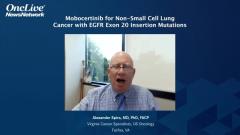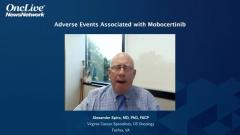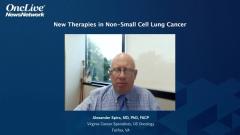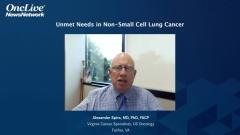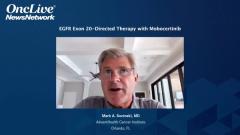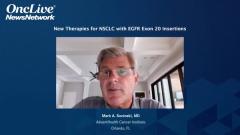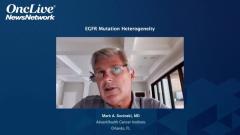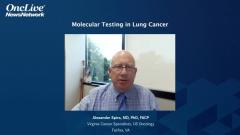
Mobocertinib’s Safety Profile
Recommendations for mitigating and managing common treatment-related adverse events associated with mobocertinib and other tyrosine kinase inhibitors.
Episodes in this series

Mark A. Socinski, MD: We briefly reviewed the safety profile of mobocertinib. As you know, this isn’t substantially different from a number of the other EGFR TKIs. Diarrhea and skin rash are the primary toxicities. Obviously, there’s similar supportive care strategies with regard to diarrhea, as we’ve done with other EGFR TKIs [tyrosine kinase inhibitors]. The skin rash seems to be a bit less of an issue in this population, but our standard paradigms of oral antibiotics, steroid ointments, antibiotic ointments—these things can mitigate those effects.
Remember, in the data that were presented at ASCO [American Society of Clinical Oncology Annual Meeting], all the skin toxicity was either grade 1 or 2. The diarrhea is a bit more of an issue, so you have to be a bit more aggressive with the supportive care. In that population, it was 20% at grade 3, so you need to be prepared to educate patients, make sure they have their Imodium [loperamide], stay hydrated, call the office, and make sure we stay ahead of it, but we’ve been using EGFR TKIs for more than a decade. There was nothing unusual about the supportive care management and the rate of toxicities with this agent relative to what we’ve seen in the past.
TRANSCRIPT EDITED FOR CLARITY


